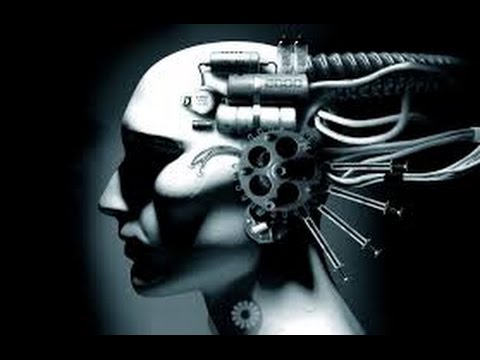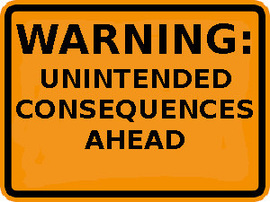While I don’t know whether or not my conservative community is wrong in its majority assessment of the current events, I do want to speak into my community and highlight an inconsistency which I find rather bothersome. One of the most used arguments I see from Christians against the current social movement is that to join one's voice in the outcry is to jettison, forego, or downplay the gospel. To join the movement decrying injustice and calling for societal change is to embrace the social gospel. To join the movement is to declare that the gospel is not enough. What the world really needs is not social change or the social gospel. What the world really needs right now is the pure gospel of Jesus Christ, because it is only the gospel which transforms hearts. The argument here is that the eternal is more important than the temporal, and that if you get your eternal priorities straight, a change of your heart and spiritual focus will change your actions. If you accept the gospel of Christ you will also change your actions. If we just get everyone saved, racism will diminish. It is the gospel which changes society, not social movements, so we ought to spend our time accordingly.
|
There are quite a few people in my circles who aren’t too fond of all the demonstrations which have been going on. In their minds, all demonstrations related to racial issues are "riots," and all of the demonstrations are lead by leftist, Marxist, communist, anarchists. Many of the same criticisms conservatives once levied against the abolitionist or Civil Rights leaders of old are being reused against those claiming to fight racial injustice today. It’s certainly possible that the movement today is of a different character than it was the last several times movements arose in the face of racial upheaval. But it’s also possible that we conservatives who have always sought to conserve the status quo and our power have the same modus operandi today as we’ve always had. It's possible that we are denying injustice in order to preserve our position, just as we've always done. Time will tell, I suppose, as hindsight will eventually make current events more clear. But until then, I think it's important to have a good dose of honest and difficult self-reflection.
While I don’t know whether or not my conservative community is wrong in its majority assessment of the current events, I do want to speak into my community and highlight an inconsistency which I find rather bothersome. One of the most used arguments I see from Christians against the current social movement is that to join one's voice in the outcry is to jettison, forego, or downplay the gospel. To join the movement decrying injustice and calling for societal change is to embrace the social gospel. To join the movement is to declare that the gospel is not enough. What the world really needs is not social change or the social gospel. What the world really needs right now is the pure gospel of Jesus Christ, because it is only the gospel which transforms hearts. The argument here is that the eternal is more important than the temporal, and that if you get your eternal priorities straight, a change of your heart and spiritual focus will change your actions. If you accept the gospel of Christ you will also change your actions. If we just get everyone saved, racism will diminish. It is the gospel which changes society, not social movements, so we ought to spend our time accordingly.
0 Comments
It doesn't matter which worldview you accept in life, any position is going to produce its nagging questions. Most people don't seem to have too much of a problem with the dissonance, either because they're unaware of the bigger questions or because it ultimately doesn't matter to them. They can go on with life and never give the problems inherent in their worldviews a second thought. That does not at all describe me. The big questions nag me, and nag me, and nag me - and will likely do so until the day I die. While I'm trying to find that middle ground and come to terms with the fact that mystery exists and isn't always bad, I don't think I can ever stop working through the big questions.
One of these big questions which arise and is particularly strong in Reformed Theology, is the question of how evil originated. If God created good humans in a good world, and if human action is the result of acting upon one's desires, then how could sin have ever come about? If a good, all-powerful God created a good world, then any deficiency which arises seems to be attributable to God. But Christians know that can't be the case, for then God would be evil.
Today, the notion of purpose grounded outside of oneself seems to be disappearing. Proclamations of “do whatever you want as long as it feels good to you,” “just believe in yourself,” and “whatever makes you happy,” abound. Purpose is no longer something one finds, but has become something one makes. But for as ignorant and superstitious as past cultures seem to our modern intellect, they understood much better than moderns that our purpose needs a grounding outside ourselves. In fact, it seems that we moderns, the ones who are embracing materialism in larger numbers, are the ones who are the fools. The notion that religion throws in an extra layer of complexity is an easy conclusion to make. But our predecessors recognized Occam's Razor before Occam did, and understood that the winner in a logical duel is not the one with the simplest answer, but rather the simplest adequate one. In this recognition, they understood that losing deity would mean losing explanation. To accept the answer of materialism was to accept a simple solution, but an inadequate one.
While the systems that were built to explain the external grounding in the past may seem very foolish to us today with their complex ideas, our society is more foolish in a number of ways since we defy philosophical grounding and logic altogether. While a Hebrew monotheist may have been fearfully superstitious, his fear that God would strike him dead made sense if that god existed. On materialism, while actions of nature may be explained through cause and effect without a direct link to God, philosophies of life as we intuitively know them end up being incoherent without a creator (e.g. free will, love, purpose, etc). Materialists laugh at ancients for believing in a god, but the ancients can laugh at the materialist for believing anything at all. The ancients may have been wrong, but they could live consistently. The materialists may be right, but find that in so being, they cannot live. For the sake of this discussion, I will be focusing on the incoherence of purpose on materialism.
And the same, I imagine, happens with beauty. Where one beholds something that is truly beautiful - were any other to behold it with the same knowledge and without prejudice - they too would find it beautiful. The reason one may find something beautiful that another does not lies more in differing amounts of knowledge or in present bias than in subjectivity.
Most parents presumably want their children to not only live, but to enjoy life and cope with what it throws at them. As parents, you have to fit this overtime job into your full time job. It is a 16+ hour a day job of parenting. And if you have other commitments outside the home as well, your workload multiplies quickly. Days become monotonous lists of waking up to a cry, dressing, feeding, changing diapers, cleaning up messes, reading a book for the 100th time, enunciating a word for the 1000th time, changing more diapers, feeding again, laying the kids down for a nap, fitting in your house chores to the 90 minutes you have "free" during nap time, ending up only getting 60 minutes because your kid wakes up early, changing another diaper, feeding again, reading a book for the 101st time... And that's only half of the day.
But despite the monotony and exhaustion of the parenting endeavor, parenting is also a fun, energizing adventure. In many ways it is a return to one's own childhood. Do you remember how exciting it was to chew gum for the first time? I didn't, until I got to see Elin's excitement at her first experience chewing gum the other day. I never knew I had the capacity to become excited about such a common act as the chewing of gum - but I did. Do you remember how exciting it was to jump off the side of the pool and into the water - a whole two inches? I didn't, until Elin experienced this for the first time the other week. I was experiencing the excitement of a mundane action that had become new. Enriching your child's life makes the monotonous endeavor of parenting wonderful. Seeing their reactions to what we now feel are mundane experiences is pure joy - both for them and for you.
Only occasionally does one find an individual who can humble themselves to admit that they have failed morally. But even when someone can admit such a thing, it's almost always done with a false sort of humility. "Yes, I've failed morally. I mean, I'm sure I've told a lie before. But I've never killed anyone. I'm just as good as the next guy." Some are freely willing to admit moral failure, but minimize it as something that is an insignificant, relative, acceptable norm. These individuals didn't miss the mark, they just hit it imprecisely. In a world where most sins are relegated to the realm of minor inconvenience and displeasure, many are confused and abhorred by the Christian notion of judgment. "The wages of sin is death? Even for a little lie?" The Old Testament seems to be an antiquated, barbaric system of "morality" that could have only been dreamed up by a nomadic, ignorant, ancient people group. How else could one explain the pettiness of its judicial system? While some of the confusion levied against the Old Testament theocracy certainly resonates with me, there is a larger game afoot. Our "enlightened" culture has not suddenly come into some esoteric understanding of what true morality is - we're still rationalizing our actions just like all the cultures before us. We're simply rationalizing morality under the guise of scientism. |
*The views and ideas on this site are in no way affiliated with any organization, business, or individuals we are a part of or work with. They're also not theological certainties. They're simply thinking out loud, on issues and difficulties as I process things.
Categories
All
|











 RSS Feed
RSS Feed